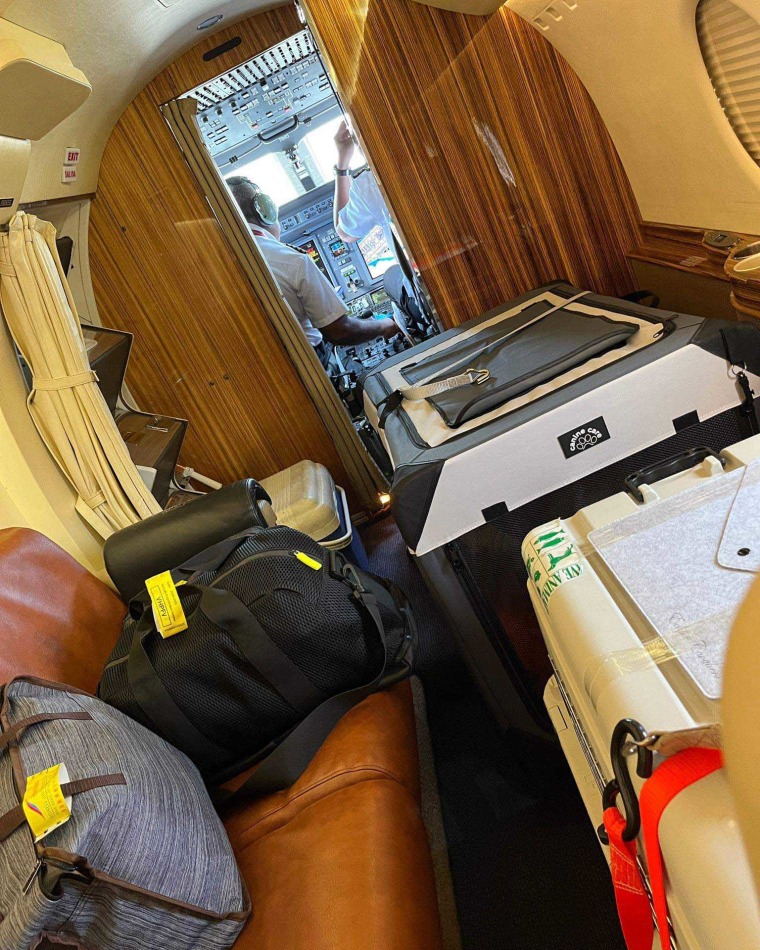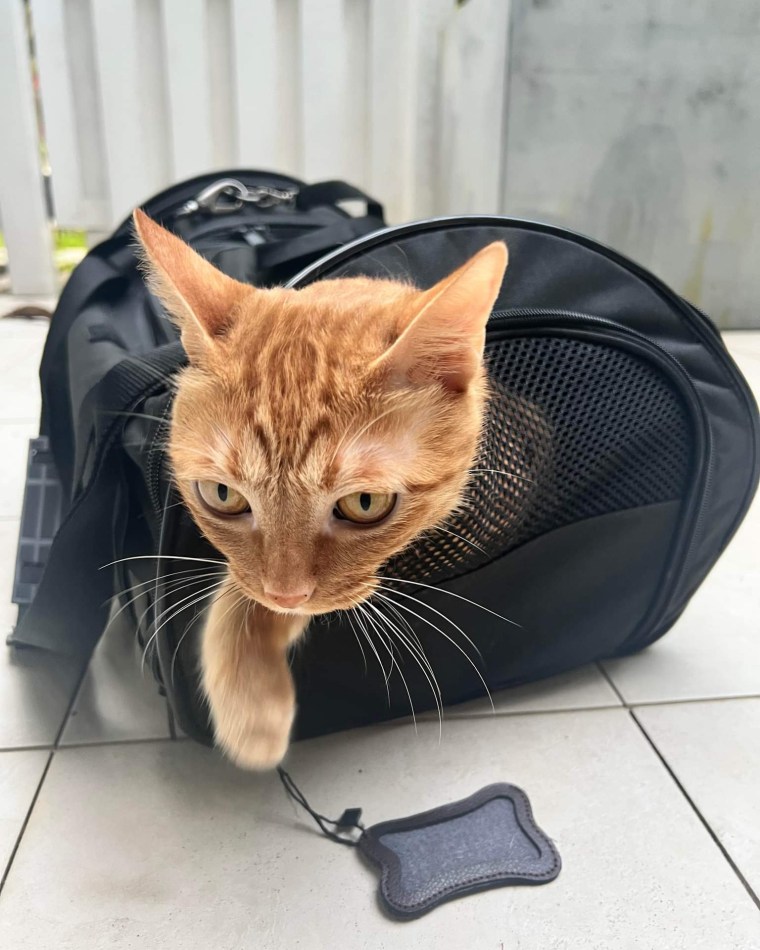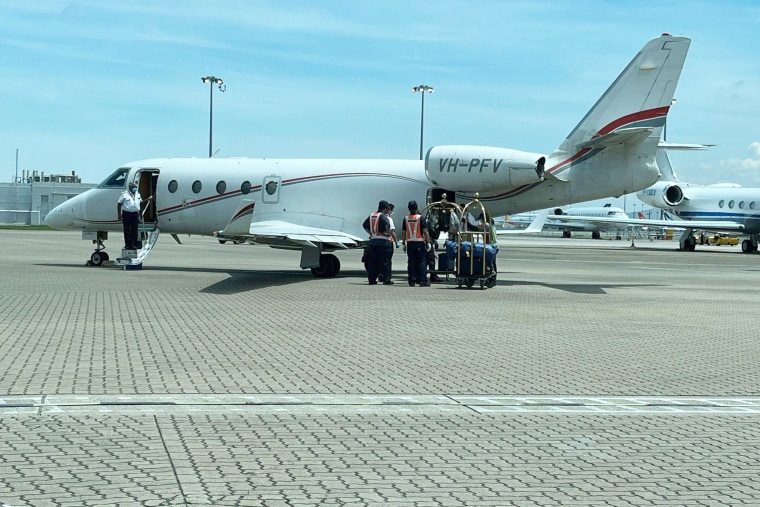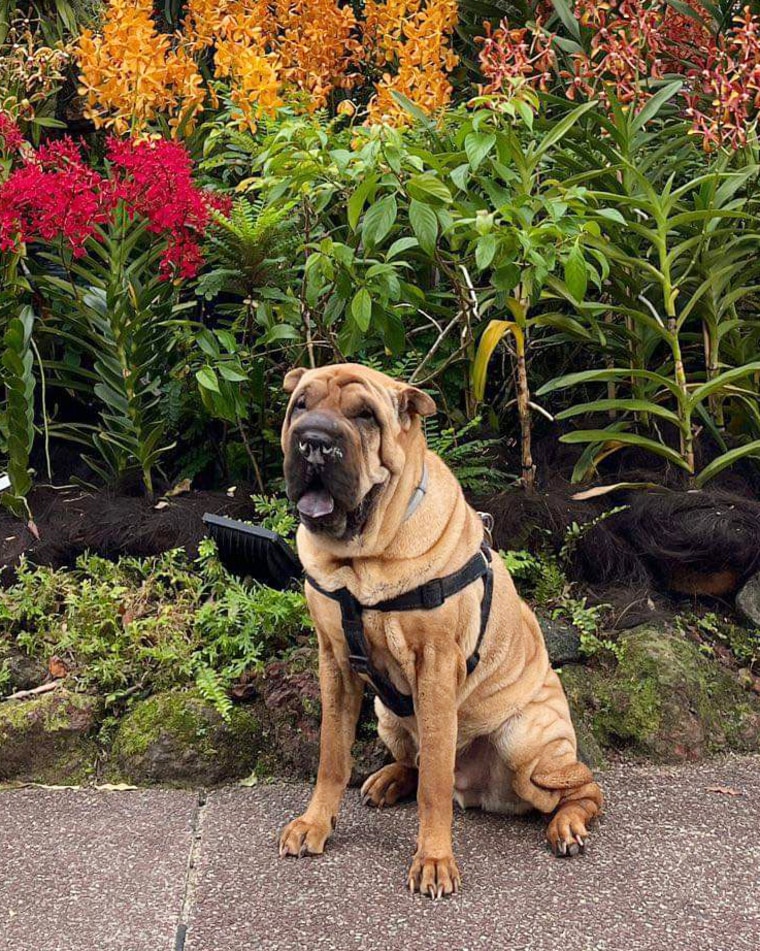HONG KONG — Getting a plane out of Hong Kong, where strict Covid-19 policies have slashed flights and sent ticket prices soaring, is hard enough for humans. It was even harder for Elvis, an 11-year-old Shar Pei whose owners recently relocated to Singapore.
So Elvis got a plane of his own.
Erika Freiman, an Australian who works in human resources, said she and her husband, Ilan, had laughed when they first read about pets taking private jets as their owners moved away from Hong Kong, a Chinese territory and international financial center.
But when she was quoted $28,000 to fly Elvis to Singapore via cargo on a commercial airline, private travel started to seem more reasonable.
“I told Ilan that I have to look that up,” she said, “because I don’t know what else to do and we can’t leave the dog.”

The Freimans are among tens of thousands of local and expatriate residents who have left Hong Kong as it struggles with Covid restrictions as well as a political crackdown following anti-government protests in 2019.
According to government figures released in August, the city of more than 7 million had a net outflow of 113,200 residents from mid-2021 to mid-2022, compared with 89,200 in the previous 12 months, although it was unclear whether the departures were permanent.
The resulting demand for pet travel has overwhelmed airlines, many of which — including Cathay Pacific, Hong Kong’s flagship carrier — are restricting the number of animals they will transport or limiting them to cargo-only flights.
Together with six other people looking to move their animals out of Hong Kong, Freiman split the cost of a chartered jet using pet relocation company Global Paws. She paid $18,000 for Elvis and her cat, Ginger Rogers, as well as a passenger ticket for her domestic helper to travel with them — a far better deal than what commercial airlines were offering.

“It amazes me that people are not shocked by the price of a ticket,” said Olga Radlynska Naudot, the founder of Hong Kong-based private aviation company Top Stars Air. “They do everything they can to keep their babies and not leave them.”
Naudot said her company had made its Pet Jet Service a permanent feature because of the sheer demand.
“I sometimes get 15, 20 requests every day from Hong Kong,” she said. “People are booking for 2023.”
Private jets are also popular among pet owners as there are fewer restrictions around breeds or types of animals, according to Pet Holidays, an animal travel agency based in Hong Kong. Snub-nosed dogs like Elvis are often turned away by commercial airlines that consider them too risky to transport.
“Demand is definitely more than supply,” said Wan Chung Hang Regan, project manager at Pet Holidays.

Elvis and Ginger Rogers were both able to travel to Singapore the same day as their owners in June, but not everyone is that lucky. Some pets stay in Hong Kong for months waiting for an available flight.
Facebook groups like “HK Flight Volunteers for Pets,” created by Hong Kong resident and dog owner Jennifer Shark, match pet owners with strangers willing to accompany their animals, sometimes in exchange for free airfare.
“I realized that a lot of people don’t know about this flight volunteer option, because of course you see lots of people flying on private jets but not everyone has that kind of money,” Shark said.

Others are finding they have no choice but to leave their pets behind; local rescue groups say they’ve been overwhelmed with animals being surrendered.
Eva Sit, communications manager at Hong Kong Dog Rescue, estimated that almost 70 percent of the 103 dogs surrendered to the group so far this year were because their owners were moving away.
“Usually when owners come to you, they would say, ‘Please help us, we have tried — we have ventured out and tried all the methods we could think of and we really have no choice,’ and I guess emotionally we feel very obligated to help these dogs,” she said in a phone interview.
Departing Hong Kong residents seeking new homes for their pets have met with backlash online, but as Freiman notes, extreme measures like private jets are not always feasible.
“You just have an enormous amount of empathy for these people trying to get their pets out,” she said. “We were lucky enough to be able to do it that way.”






